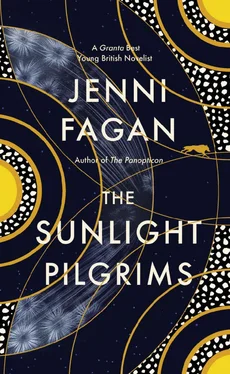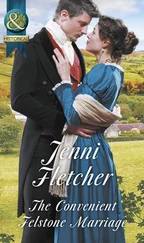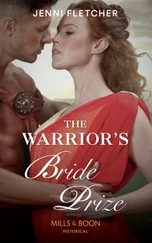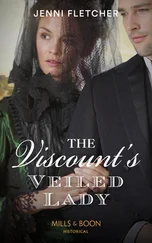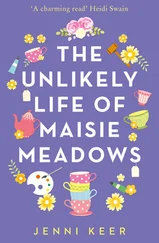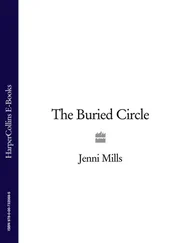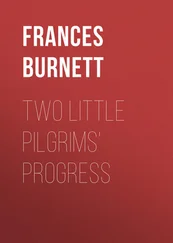— Not this time, Constance says.
— That’s what you fucking said last time!
She waits for her mum to say Swear jar but she’s even given up on that now. This winter is getting under her skin and she’s just staring out the window at the snow, looking the tiniest bit frightened.
— He’s making you something.
— Is it an apology?
— I think so.
— I tell you what, Mum: you tell him that I will take the old-fashioned kind of apology when you look someone in the face and you say Sorry and you mean it; and if he doesn’t give me that, I swear I never want to stand in the same room as him again. Not fucking ever! He’s a judgemental, self-rightous, self-satisfied, complete fucking arsehole! I have no time for people like that.
Stella pulls each of her fingers until they click out of their socket slightly; it’s a comforting sensation, like sitting with her hands down her pyjamas at night watching telly in bed, or when she does a big shit and every part of her feels cleaner and lighter, or thinking that sex might be like that one day, a kind of emptying of herself, so she is free and less held down. She will go on the trans-teen website tomorrow. A boy will fall in love with her there. He’ll be like the kind of person who founded Apple or something. Constance will loathe him until she sees how happy he makes Stella. Then they’ll marry in the mountains, witnessed by her mum and Dylan and a couple of goats. They’ll have a reception with rose-petal tea and candles under the wishing tree in the glen. Stella’s breath leaves a circle of condensation on the window. She uses the cuff of her jumper to wipe it away. There will be deer up in the forest standing still as trees right now. She needs to go where they are. The icicles on the caravan opposite are long, but whorled like narwhal tusks — each points toward the earth and then tapers into snow. Hopefully the farm road will be packed solid. It should be, because the tractors are still trying to get the last of autumn’s hay-bales out before they’re all frozen and lost to winter as well.
Her mother’s wolf-head sits on the shelf above the wood-stove.
Constance is in the bathroom.
Carefully tiptoeing over the floor, avoiding the creaky floorboard, Stella lifts the wolf-head up. It is surprisingly light and the fur is so soft. How can Alistair be so good at something like this and so utterly shit at being a decent human being? Stella slips the wolf over her head, and her nose and lips are framed below the long wolf-nose. The fur cloak hides her and makes her feel safe and warm straight away. It is strange looking at herself as a wolf in their silver sun-ray mirror on the wall. The wolf-cape looks even better on her than it did on her mother. Her black eyes peer out. Her lashes are long. Stella tugs the wolf-head until the ears sit perfectly; two long furry arms snake down on either side of her braids and the fur is white, like the wolf walked right out of the snow — like winter herself created it from particles of ice and dust and sent it out to find a mortal girl who isn’t afraid of the big bad wolf, who knows how to use an axe and stir her own porridge, who knows that worth isn’t something you let another person set for you, it is something you set yourself.
If the doctor asks her what she is most — she will tell him she is a wolf-child.
Her mother is winter.
Their neighbour is the child of Nephilim.
Her biological male donor is a future bone teapot.
Stella tips her head to the right and the wolf appears to be listening.
When the doctor asks her what she hears when she speaks (the strange tones her body stores right now), she will tell them she wants her voice to be clear as the single chime of a triangle on the top of a snowy mountain. She’s not worried about breasts and she doesn’t want rid of her penis, small as it is, not if it means getting an operation anyway. She just wants smooth skin and her girl-voice and to leave wolf-prints in the snow each morning.
The doctor will tell her that he is the one who owns the rights to her body and soul, that he will be the one to tell her what she can or cannot do with her own chromosomes. He will tell her about countless cancer patients who couldn’t get treatment because of their postcode and he will expect her to feel bad about that, as if by being who she is, it takes medical care away from someone else with a real illness. But she is not ill. He will tell her to think herself lucky that this is something she wants — it’s not like something she needs, like a heart transplant, or a new kidney. That’s what he’ll say. This isn’t a want. Who would want this? She is a girl. In the wrong body. She didn’t choose it and the idea of being forced to walk around in a man’s body makes her want to peel her own skin off. She’ll have to convince him she’s always wanted to be just a girl. She will have to use the word just . It’s important. They need girls to know their place, after all. She won’t tell him not to be so dickish just because he gets to mainline testosterone for free, like a greedy, hairy bastard. On the table will be a file with her boy-name scored through and Estelle Fairbairn written in with a red biro. Alert — the red Stella. Alert, alert! Once he has reassured himself that she understands there is no decision about her body that she will ever make all on her own, that it will be teams of others, or singles, or surveys, or down to questions of budget or protocol, once he sees that register in her eyes he’ll be satisfied. He’ll sit back and watch her absorb the power he has over whether she can be a true thing or not. Outside there are three suns in the sky, and in the mirror there is a wolf-child with long black braids. Her mother steps out of the bathroom and Stella yanks it off her head!
THE WOLF is back on the shelf. Its nose points toward the door. Stella has smoothed down her braids and resumed her post back-to-front on the sofa, staring out of the window. Constance stands at the door; she does that thing where she flexes her toes — her bare feet are bony — and cricks her neck. She takes half a step to the kettle, then one turn to the bright-red cereal bowls that she bought in Italy years ago.
— Who is that from?
Stella nods toward a postcard tacked up onto the wooden saucepan rack.
— Caleb.
Her mother turns away and there’s a tenseness to her when she says his name. From the back she doesn’t look like an adult, but she doesn’t really look like a teenager either, because she is too muscular, her frame lean, hair too short. Constance sits down at the kitchen table and puts the open cereal packet on the bunker.
— Would you take him back, and Alistair?
Her mother doesn’t answer.
— What about Dylan?
Constance unfolds the paper and keeps frowning at it. Stella grabs her coat and she is out of the door, her eyes stinging. She crunches down the porch and away in the distance the village church bells chime. The snow and the ice and the cold are seeping into everybody. The whole world is getting meaner, if that is even possible. The church bells have been ringing like this for hours. It is something to do with the suns. The bells are always rung by the same old man, who took the job over forty years ago and came to the school last year to tell the pupils at Clachan Fells Primary School all about it. He told them that when they first moved to Clachan Fells, his mother warned him to be careful if he was going to get drunk in the village pub in winter. She said their neighbours would be able to tell how drunk he had been by the pattern of his footprints in the snow the next morning. That afternoon they made snowflakes by cutting little triangles out of paper and then they decorated the village hall for the Christmas party and a guy was brought in to DJ, with some flashing lights, and all of the songs were rave or pop and Stella prayed for Joy Division to materialise and stun them all. The song by Joy Division she would have had the DJ play would have been ‘She’s Lost Control’. That is what this winter feels like. Like everything that was once in order has unravelled, so fast nobody can keep up. Stella can hear the thwack of metal ringing from the bells all the way out here by the fields. Ropes run up into the belfry so that the bell chimes, it chimes, and chimes, and they are telling everyone to come to church, now the weather is getting worse by the day rather than weekly. They must all gather to pray. There are people in Clachan Fells village who believe this winter is the devil’s work. He is wreaking revenge for being disbelieved all this time. The parhelia is still there but it is already fading. She checks her bike over; the big wheels are wide and can handle the snow as long as it is packed hard underneath, so she shouldn’t go offroad, or not far anyway. The fields will be frozen as well — she’d probably be able to cycle on them too. The winter spokes are brilliant. Her mother always finds what they need out of sheer thin air. Luck and tenacity are her only employer. Constance steps out onto the porch to watch her checking over her bike.
Читать дальше
